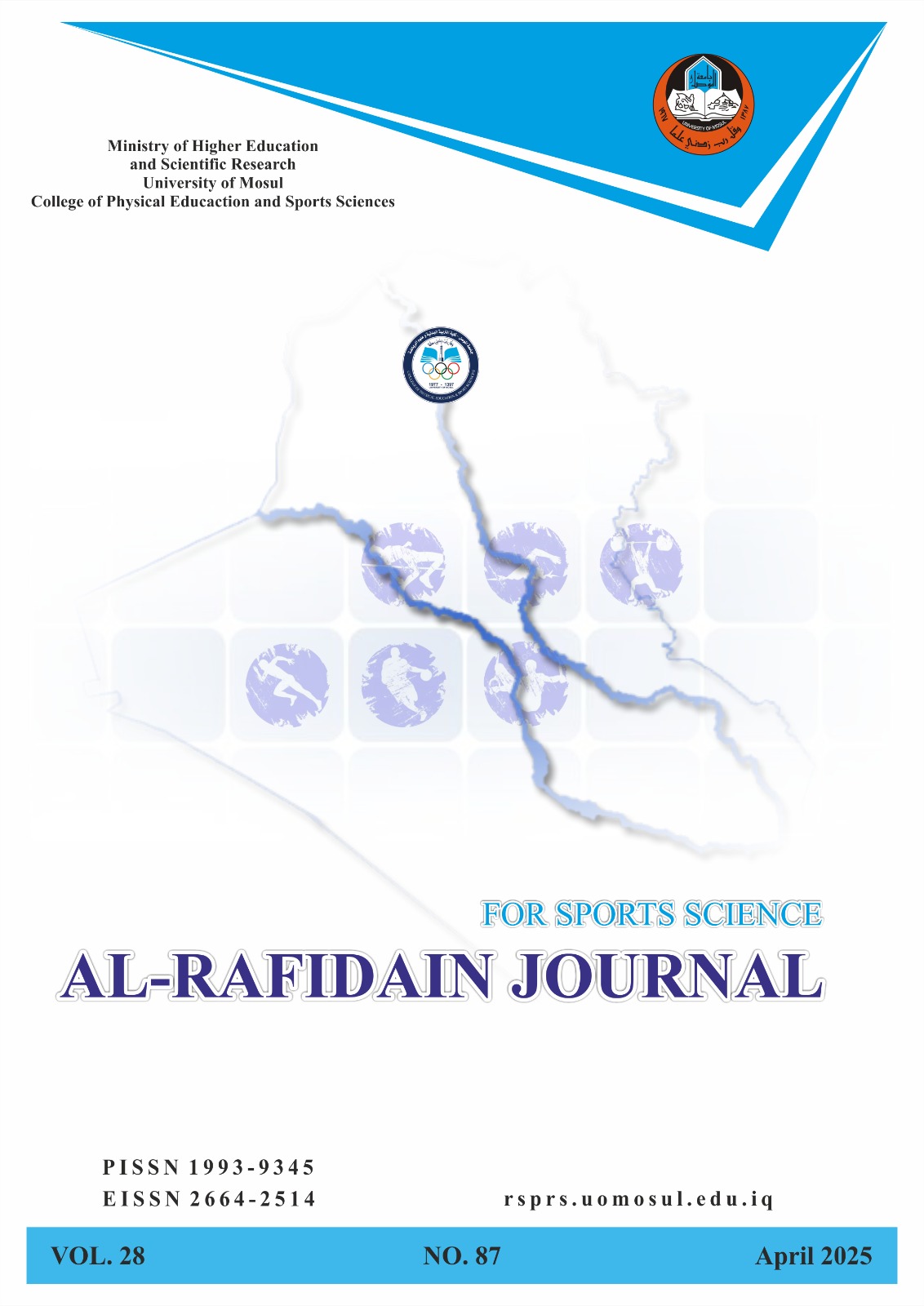Effects of Repeated Anaerobic Effort on Heart Rate during Various Effort and Recovery Periods and the Level of Accumulated Lactate for Sprint Runners
Abstract
The research aims at being acquainted with the effects of anaerobic effort on Heart rate (HR) during various recovery periods of multiple sprints for sprint runners. The descriptive method was used since it is convenient to the nature of the study. The sample included 7 sprinters chosen intentionally from the short distance runners of Nineveh state team. The experiment included Running Anaerobic Sprint Test (RAST) of 6 sprints to cover 35 meters with 10 seconds among. HR was measured for each sprint and during the recovery of the whole test after 30 seconds, 1 minute, 2 minutes, 3 minutes, 4 minutes and 5 minutes. In addition, the venous blood samples were drawn at the fifth minute of the recovery to measure the lactate concentration.
The research concluded the following:
There is a significant increase in HR while transfer from the rest to the first repetition of the anaerobic effort and the increase continues till the fourth repetition only as a result of direct response of cardiovascular system to the effort. But the difference will not be significant when transferring to the fifth then the sixth repetition as a result of reaching to the maximum consumption of Oxygen.
There is a significant decrease in HR just after completing the effort and the decrease continues till the fifth minute of the recovery.
There is a significant difference in the blood lactate concentration between the rest and after the anaerobic effort as a result of multiple repetitions with limited relieve interval among.
The most important recommendation of the research for coaches is a necessity of using trainings with limited relives rest among repetitions for improving the ability of athlete to perform large training






